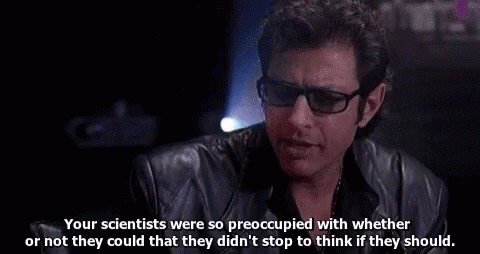Contents
The counterintuitive idea from Zen Buddhism that wisdom, even enlightenment, comes from seeing the world as we did as a beginner: with an open mind and fresh eyes. This idea was popularized in the west by Zen practitioner Shunryū Suzuki‘s book Zen Mind, Beginner’s Mind. In Japanese, this is called shoshin (初心). In the author’s words:
The practice of Zen mind is beginner’s mind. The innocence of the first inquiry — what am I? — is needed through Zen practice. The mind of the beginner is empty, free of the habits of the expert, ready to accept, to doubt, and open to all the possibilities. It is the kind of mind which can see things as they are, which step by step and in a flash can realize the original nature of everything.
A Zen proverb:
Before enlightenment, chop wood and carry water; after enlightenment, chop wood and carry water.
Baby wisdom
Chuang-Tzu, praising the “mental hygiene” of babies (I bet he never had one of his own):
The baby looks at things all day without squinting and staring; that is because his eyes are not focused on any particular object. He goes without knowing where he is going, and stops without knowing what he is doing. He merges himself with the surroundings and goes along with them. These are the principles of mental hygiene.
Stages of Learning
Bruce Lee’s “three stages of learning”::
A punch is just a punch
A punch is no longer a punch
A punch is just a punch
The beginner doesn’t overthink technique because they can’t, while the expert doesn’t overthink their technique because they’ve internalized it, it’s become instinct. From this perspective, one can’t just skip the awkward middle stage. While you may end up in the same place where you began, it’s you who has to change to get there.
In “Don’t Rush to Simplicity”, Shawn Wang connects this idea to the midwit meme with a number of examples of wisdom leading experts to arrive at the same conclusions as novices, albeit with greater confidence and appreciation for the fact.
And this echoes The Hero’s Journey, an age-old template for stories in which the protagonist goes on an adventure and returns home changed. The stories that resonate most with us are not ones where the hero finds what they’re seeking in a faraway land and stays there, but rather when they find what they’re seeking within themselves, which the return home makes most clear.
My Programming Experience
This maps readily to my professional experience building software. As a novice (especially one without formal training) I built simple software because that was all I knew how to do. As my knowledge grew, so did the complexity of what I could build, though I was naive about the costs of that complexity. An extreme adherence to “the right tool for the job” led me to always seek the most technically correct solution. I came to realize what I was missing: that “the right tool” is context-dependent and in many cases a solution that delivers 80% of the value for 20% of the cost is most appropriate, and that most of the cost of software comes from ongoing maintenance rather than up-front development time. While I can build complex solutions when called for, I’ve learned the hard way the virtues of simplicity. Another meme captures the sentiment:
